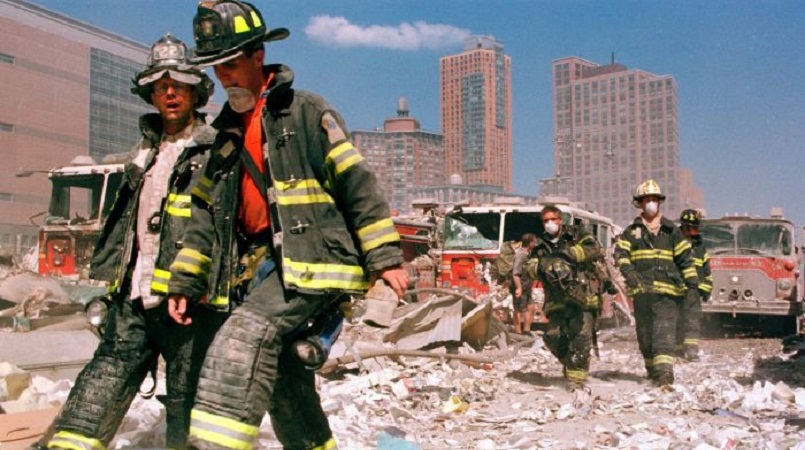
As the 15th anniversary of the September 11 terrorist attacks approaches, new research reveals many 9/11 rescue workers are at risk of early onset dementia.
Around one-third of all World Trade Center (WTC) rescuers — 818 people — were recruited for a new study to analyse how post-traumatic stress disorder (PTSD) may affect their cognitive abilities.
The results were "staggering", said Dr Sean Clouston, one of the research authors.
Approximately 12.8 per cent (104 people) were found to have some cognitive impairment — affecting memory and thinking skills — and 1.2 per cent (10 people) had probable dementia.
The researchers were particularly shocked as the average age of responders was 53.
If these results are representative of the whole responder cohort (33,000 people who are currently in a treatment program for WTC responders), up to 5,300 people may have cognitive impairment and up to 810 may have dementia, the study said.
The study recommended doctors bear in mind the potential for cognitive impairment among sufferers of PTSD.
"Cognitive impairment can compound the course of PTSD and depression, impairing the person beyond the impact of PTSD itself," the study said.
"A combination of PTSD and cognitive impairment can seriously threaten someone's ability to take their medication, keep appointments and manage their day-to-day affairs," Dr Clouston said.
More research needed on PTSD and cognition
The study also found that responders with cognitive impairment had lower education, were in non-law enforcement occupations (for example construction), smoked, and were of an older age compared to those without cognitive impairment.
"This is a problem we must solve," Alzheimer's Association chief science officer Dr Maria Carrillo said.
"The silver lining in these troubling new findings is that they will help us better understand the relationship between PTSD, cognition and dementia. More research is needed in this area."
This new research highlights the significance of 're-experiencing symptoms' which are known as intrusive thoughts of past trauma that occur while awake or during sleep.
"Our results support research noting the importance of re-experiencing symptoms as an early marker of mental pathology," Dr Clouston said.
One-fifth of responders developed PTSD after facing an array of psychological traumas while searching for survivors following the attack which killed 2,606 at the WTC.
Dr Coulston believes this to be the first study to examine the link between PTSD and cognitive impairment in a group of WTC responders without head injuries.
The new findings appear in the journal Alzheimer's & Dementia: Diagnosis, Assessment & Disease Monitoring.
